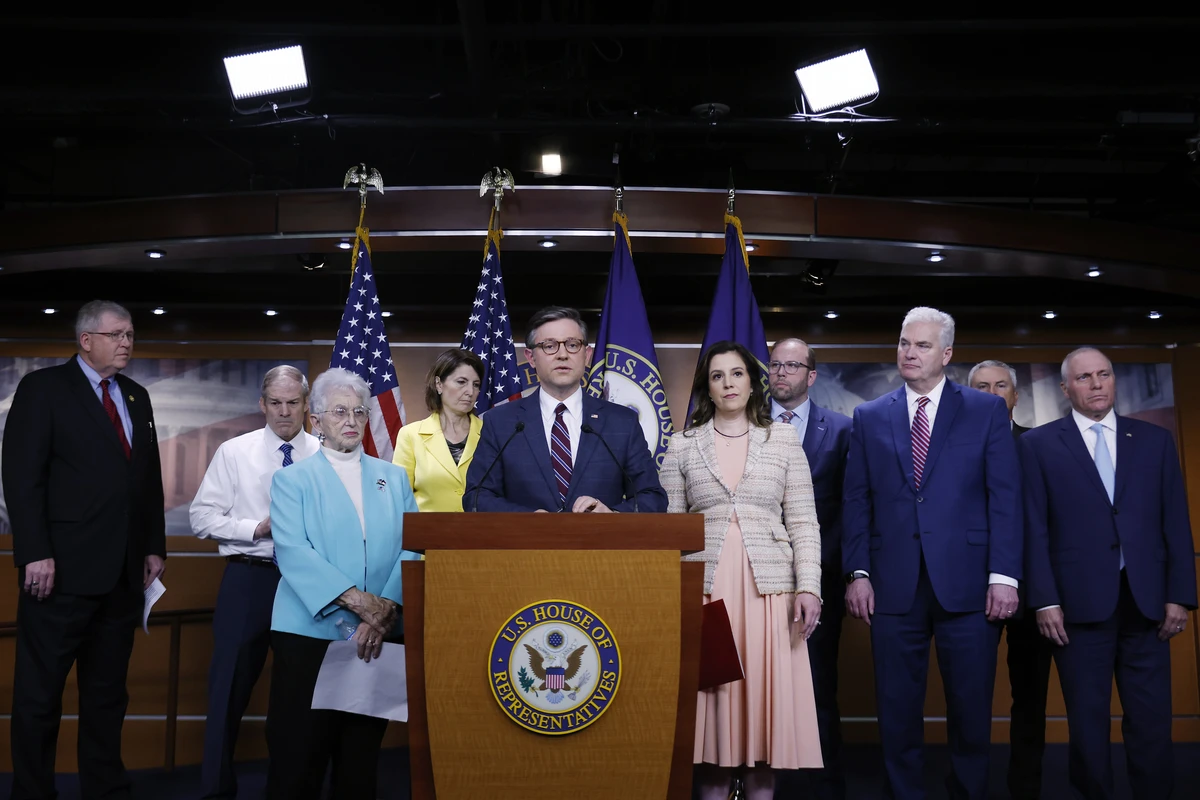The GOP-led House canceled votes ahead of the August recess without getting the 12 appropriations bills passed, breaking a promise to voters. Last October, House Speaker Mike Johnson, R-La., had assured colleagues that the House would not break for recess in August “unless all 12 appropriations bills have passed the House,” according to Fox 40.

Instead, House Republicans canceled votes for the upcoming week and are expected to return to work in early September. They were originally scheduled to be in session until August 1. Federal appropriations expire on September 30, and the House has only passed five of the 12 appropriations for fiscal year 2025, increasing the likelihood of Congress passing another temporary Continuing Resolution to keep the government funded.
In order to prevent a government shutdown, the House must pass a continuing resolution by October 1. Congress will be back in session on September 9. Budget negotiations and disagreements over the amount of cutting government spending were among the reasons former House Speaker Kevin McCarthy, R-Calif., lost his position. A faction of the GOP took issue with constant spending bills.
Speaker Johnson was almost ousted by Rep. Marjorie Taylor Greene, R-Ga., after he supported a $1.2 trillion “minibus” spending package. Despite the challenges, Republicans managed to pass one of the four fiscal 2025 spending bills that was on the calendar on Wednesday. However, the vote failed or tied numerous times before passing. An unnamed GOP lawmaker told Politico that there was a lot of “arm twisting” during the vote from the “crackerjack whip team,” who were talking to members of the Freedom Caucus and moderates.
Majority Whip Tom Emmer, R-Minn., reportedly said more challenging bills weren’t brought forth due to their likelihood of failure. Earlier this week, the House canceled a vote on a bill that would have funded the Department of Energy because of concerns about the cost of the funding. “I’m kind of undecided on the [energy and water bill], because it increases spending,” Congressman Chip Roy, R-Texas, told The Hill when asked about the legislation. “So, I gotta kind of look at that in the context of the whole package.”
Part of the reason that appropriations measures were not pushed through is due to disagreement among GOP lawmakers with language on abortion and contraceptive protections in some legislation, according to Politico. Unnamed sources told the outlet that funding bills for the Agriculture Department, the FDA, and Financial Services were not taken up on the floor this week as originally planned.
Earlier this month, the House failed to pass a $7 billion funding bill for different parts of the legislative branch with 10 Republicans voting against it alongside the Democrats. Congressman Steve Scalise told The Hill, “When you have a situation where the Democrats all vote no on every appropriations bill, you eventually hit a wall because, you know, we have a few of our own members that vote against some of these bills.”
The last vote the House took before recess on Thursday was on a resolution denouncing Vice President Kamala Harris’ performance as the Biden administration’s “border czar.” Six Democrats joined all Republicans in voting for the measure, which passed 220-196. According to Fox News, the House Democrats who voted for the resolution are Reps. Jared Golden, D-Maine; Marie Gluesenkamp Perez, D-Wash.; Mary Peltola, D-Alaska; Henry Cuellar, D-Texas; Don Davis, D-N.C.; and Yadira Caraveo, D-Colo.
Kyle Kondik, Managing Editor of Sabato’s Crystal Ball, said he doesn’t think the House’s failure to pass the appropriations bills will impact the 2024 elections. Sabato’s Crystal Ball is a nonpartisan political analysis and handicapping newsletter run by the University of Virginia Center for Politics. “I doubt the internal process problems on the GOP side will matter much electorally,” he told Just the News in an emailed statement.
“Republicans are fortunate that voters don’t pay close attention to the inner workings of the House – they are arguably not a majority party at all, given that they’ve needed to pass major legislation earlier this year on suspension of the rules, meaning that they need two-thirds majorities to pass things,” Kondik continued. “My guess is that the House ultimately goes to the presidential winner, though.”